Colonialism and its Narratives: rethinking
the colonial archive in Australia conference
10-11 December 2018
About the conference
This conference aims to bring together new approaches to colonial Australia across the Arts, Humanities and Social Sciences. Colonialism puts a range of practices and discourses into play: violent encounters, dispossession, trauma, 'development', 'civilisation', governance, trade, and so on. It produces endless narratives about what it is, what it does and the lives it radically changes. It is both immensely destructive and energetically productive: recording its various practices and discourses through a rapidly growing range of media and visual technologies.
The narratives of colonialism worked to reinvent Australia in colonialism's image, leaving us with legacies and frameworks that continue to shape who we are and how we identify to the world around us. Sometimes we try to 'forget' colonialism, but it constantly claims us and returns to us; we continue to live in its aftermath.
This conference will address some of the following topics:
- Militant colonialism and frontier violence
- Indigenous dispossession and resistance
- Colonial racism, its histories and legacies
- Colonialism and the anthropological turn
- Language and the exchange of knowledge
- Money, capitalism and trade
- Settler and Indigenous governance
- Colonial modernity and the 'global south'
- Metropolitan identities
- Bush, desert and coastal narratives
- The convict archive
- Gold rush narratives
- Colonial transnationalisms
- Immigrant narratives
- Print culture and colonial literature: prose fiction, poetry, theatre
- Gender and sexuality
- Colonialism and the law
- Institutions and their networks
- Collectors, archivists and the colonial GLAM sector
- Colonialism and the visual arts
- Environment, species and the natural sciences
- Colonialism and everyday life
- The colonies and the nation: north, south, east and west
- Colonialism today
Contact
For more information about the conference please contact
The Australian Centre
Email: aust-centre@unimelb.edu.au
Banner image: Black Thursday, February 6th, 1851. William Strutt 1864. State Library of Victoria.
Tim Bonyhady, Australian National University
Gregory Lehman, the University of Melbourne
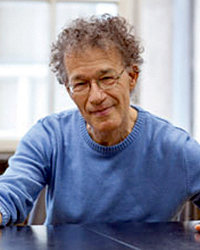
Curating the Colonial: Reflections on The National Picture: The Art of Tasmania's Black War
Tim will discuss how the exhibition evolved as a jointly curated venture; Greg will discuss the Aboriginal community consultation process, including the responses to the Robinson material; Tim will discuss the proposed exclusion of the Law bust of Robinson at the TMAG showing of the exhibition; Greg will discuss the exclusion of the French lithographs at Tasmanian Museum and Art Gallery and their inclusion at Queen Victoria Museum & Art Gallery (QVMAG); Tim will discuss the omission of Duterrau's Conciliation from QVMAG and how one of David Gough's spears came to be the front-of-house work; and Greg will conclude with some reflections on the show.
Professor Tim Bonyhady is one of Australia's foremost environmental lawyers and cultural historians, a Professor of Law at the ANU where he is also Director of the Centre for Law, Arts and the Humanities (CLAH). His many books include The Colonial Earth (Miegunyah Press 2000), which examined the origins of environment concerns and colonial art practice in Australia. Tim was co-curator of the National Gallery of Australia's recent exhibition, The National Picture: The Art of Tasmania's Black War, which connects colonial Tasmanian art to themes of representation, the rule of law, rights and injustice. His book on this material, with Greg Lehman, was published by the National Gallery of Australia in June 2018.
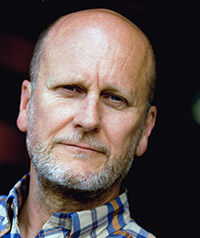
Greg Lehman is currently a McKenzie Research Fellow in Art History at the University of Melbourne. He has held previous research appointments at the Australian Institute of Aboriginal and Torres Strait Islander Studies, and the ANU's National Centre for Indigenous Studies. In 2017, he received the 2016 AAANZ award for 'Best Art Writing by an Indigenous Australian' for his essay Benjamin Duterrau: the Art of Conciliation. A curator and essayist on history, identity and place, Greg is an Indigenous advisor to Hobart's Museum of Old and New Art and, with Tim Bonyhady, recently co-curated The National Picture: the Art of Tasmania's Black War; a major touring exhibition at the National Gallery of Australia. Greg recently completed a PhD at the University of Tasmania's Academy of the Arts. His thesis, 'Regarding the Savage: visual representations of Tasmanian Aborigines in the nineteenth century' extended Bernard Smith's analysis of Enlightenment ideologies in the South Pacific.
Penny Edmonds, University of Tasmania
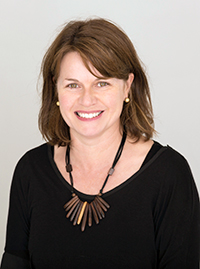
Black Line/Confiscation Line: Risky Performances and Contesting Reconciliation in Australia and Aotearoa New Zealand
Philosopher and playwright Hélène Cixious has described theatre as 'by definition the stage where the living meet and confront the dead, the forgotten and the forgettors, the buried and the ghosts, the present, the passing, the present past and the passed past'. Nowhere, I argue, is this more apparent than in the working through of the public, performative politics of reconciliation in settler societies, where Indigenous and non-Indigenous peoples meet in the long shadow of colonial frontier violence. In this talk, I explore two Indigenous-led performances that deal directly with the colonial past and its aftermath: Tame Iti's fiery re-enactment of the New Zealand Land wars at the historic confiscation line in Ngāi Tūhoe country in 2005, and the 'Black Line' ceremony in Tasmania in 2001.
This talk considers these material lines of colonial warfare in the landscape and the 'lines' of the settler archive that serve to entrench colonial narratives against the re-visioning ‘lines’ of subversive Indigenous performance. Rather than peace-building ceremonies of unity and good feeling accompanied by the handshake that are the signature gesture of state based reconciliation, this talk explores the radical crossings of two colonial lines of violence and the 'affective alchemy' of the performances, including anger/rejection, endurance/survival and togetherness as performed by Indigenous peoples and others as they make claims on the settler state. These are risky performances, fierce acts of anti-forgetting drawn from the archive of Indigenous embodied genealogy and action, which reject colonial narratives and refuse that these sites of violence remain as 'dumb places' where the events of the past cannot be spoken.
Penny Edmonds is Associate Professor and a recent ARC Future Fellow (2012-2017) in the School of Humanities at the University of Tasmania. Penny's research interests include colonial/ postcolonial histories, humanitarianism and human rights, Australian and Pacific-region transnational histories, performance, and museums and visual culture. She is a recent co-editor of Australian Historical Studies (2015-2018). Her books include Urbanising Frontiers: Indigenous Peoples and Settlers in 19th-Century Pacific Rim Cities (UBC Press 2010) and Settler Colonialism and (Re)conciliation: Frontier Violence, Affective Performances, and Imaginative Refoundings (Palgrave 2016), which was shortlisted for the Ernest Scott Prize in 2017. Penny presented the 2017 Trevor Reese Memorial Lecture in Australian History, at the Menzies Centre for Australian Studies, King College, London, titled 'Heart, Power, Treaty, Truth: Affective, Political Performances in (post) Reconciliation Australia'.
Bruce Pascoe, Wathaurong Aboriginal Co-operative
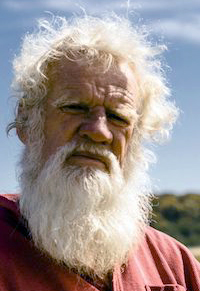
Dark Emu
Myths about the lives of pre-colonial Aboriginal and Torres Strait Islander people have proven deeply entrenched. But in his 2014 book Dark Emu, Bruce Pascoe struck a grievous blow to one of the most widely accepted assumptions of Australian pre-settlement history. He argued, and presented robust evidence drawn from the journals of European explorers, that Indigenous people were not hunter-gatherers at the time of colonisation.
'The evidence insists that Aboriginal people right across the continent were using domesticated plants, sowing, harvesting, irrigating and storing - behaviours inconsistent with the hunter-gatherer tag,' he has said.
Dark Emu, which won Book of the Year at the 2016 NSW Premier's Literary Awards, also challenges existing narratives around housing construction, cooking and clothing prior to European settlement. What does challenging the past of Aboriginal and Torres Strait Islander people mean for the present?
Bruce Pascoe is a Bunurong, Yuin and Tasmanian man born in the Melbourne suburb of Richmond. He is a member of the Wathaurong Aboriginal Co-operative of southern Victoria and has worked on the retrieval and teaching of Wathaurong language. With Lyn Harwood, Bruce edited and published Australian Short Stories for sixteen years. His many novels include Night Animals (1986), Shark (1999), Earth (2001) and Ocean (2002). His book Fog a Dox won the Young Adult category of the 2013 Prime Minister's Literary Awards. His non-fiction publications include Convincing Ground: Learning to Fall in Love with Your Country (AIATSIS 2000) and Dark Emu: Black Seeds: Agriculture or Accident (Magabala Books 2014), which won the NSW Premier's Literary Awards Book of the Year in 2016. This book was also the inspiration for the Bangarra Dance Theatre's recent production Dark Emu, directed by Stephen Page.
Lynette Russell, Monash University
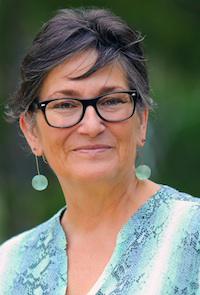
Colonial Narratives: Affect and archival subjects
It is a common understanding that Australia was colonised without the consent of the traditional owners despite substantial and unequivocal instructions from the British Colonial Office. Nearly thirty years ago Henrietta Fourmile described Aboriginal people as 'captives of the archives' and alerted us that engaging with historical materials which emerge out of this illegal occupation can implicate the researcher in the ongoing processes of colonialism. Historians, and other users of archives, often observe the excitement and emotion of their 'discoveries'. Archives containing the physical remains of the past can transport us, we can move beyond the here and now we can time travel and retrace the past.
For many Aboriginal people archival research can also be a minefield of affect and distress. In this talk I will consider several case studies where the experience of delving into colonial archives elicits complex responses ranging from re-inscribing historical trauma, to the euphoria of discovering lost ancestors and kin. The colonial archives and the narratives they enable us to develop are forever enmeshed in delicate tension as the researcher attempts to balance the power of the written word with the lived experience of the archival subjects.
Professor Lynette Russell is Director of the Monash Indigenous Studies Centre (MISC) at Monash University, Melbourne. She has published widely in the areas of Indigenous and contact history, post-colonialism and representations of race, ethnographic knowledge and archaeology. Her many books include Roving Mariners: Aboriginal Whaler and Sealers, in the Southern Oceans (SUNY Press 2012) and, with Kate Auty, Hunt Them, Hang Them: 'The Tasmanians' in Port Phillip, 1841-42 (Justice Press 2016). Lynette was a contributor to the NGV's Colony: Australia 1770-1861/Frontier Wars(2018), where she was also one of the exhibition's opening speakers. She is the current President of the Australian Historical Association.
Registration for Colonialism and its Narratives: rethinking the colonial archive in Australia is closed.
Full conference registration
Full conference registration includes attendance at the conference on Monday 10 and Tuesday 11 December 2018 including keynotes. Lunch, morning and afternoon tea on both days.
One day registration
One day registration includes attendance at all conference sessions and activities on the day selected. Lunch, morning and afternoon tea on the day selected.
Conference dinner
The conference dinner will be held on Tuesday, 11 December at 6.30pm, at Naughtons Parkville Hotel.
A wide range of accommodation options are available near the University of Melbourne in Parkville and in the surrounding locations of Carlton, Flemington, Fitzroy and the CBD. Some may offer a university rate. Please contact these facilities to make a reservation, or if you have queries about their services.
Parkville
Maclean House
Centre for Theology and Ministry,
29 College Crescent, Parkville 3052
Phone: +61 3 9340 8800
Email: info@ctm.uca.edu.au
Graduate House
220 Leicester Street, Carlton 3053
Phone: +61 3 9347 3428
Email: admingh@graduatehouse.com.au
Naughtons Parkville Hotel
43 Royal Parade, Parkville 3052
Phone: +61 3 9347 2255
Email: info@parkvillehotel.com.au
Naughtons Parkville Hotel website
Vibe Hotel Carlton
441 Royal Parade, Parkville 3052
Phone: +61 3 9380 9222
Email: carlton@vibehotels.com.au
Larwill Studio, Arts Series Hotel
48 Flemington Road, Parkville 3052
Phone: +61 3 9032 9111
Email: info@artserieshotels.com.au
Larwill Studio, Arts Series Hotel website
Carlton
Rydges on Swanston
701 Swanston Street, Carlton 3053
Phone: +61 3 9347 7811
Email: reservations_rydgesswanston@evt.com
Carlton Terrace
196 Drummond Street, Carlton VIC 3053
Phone: 0410 676 344
Quest Carlton on Finlay
2‐9 Finlay Place, Carlton 3053
Phone: +61 3 8341 4777
Quest Carlton on Finlay website
Best Western Travel Inn
Cnr Grattan and Drummond Streets, Carlton 3053
Phone: +61 3 9347 7922
Email: res@travelinn.net.au
Accommodation near the University of Melbourne map
Other accommodation options
Other hotel option can be found via booking sites such as:
Depending on availability, the University's Residential Halls and Colleges offer casual accommodation. Availability is generally, but not always, during non‐semester periods. Please submit your accommodation enquiry online on the Colleges website. If a College is able to help you, they will contact you directly.
Location
The conference will be held in the Old Arts (Building 149) at the University of Melbourne's Parkville campus.
Travel options
Getting into the city from the airport
Skybus
From Melbourne Airport, take SkyBus to the Melbourne city terminal situated at Southern Cross Station (in Spencer Street). This normally costs approximately $18.00 each way, and does not need to be booked in advance. For information about the public transport services which run to and from Melbourne Airport, including SkyBus and bus routes 478, 479, 500 and 901, please see the Public Transport Victoria Airport buses web page.
Taxis
A taxi from the airport will take around 40 minutes and will cost approximately $50.00. Taxi ranks are located on the ground floor outside Terminals 1 and between Terminals 2 and 3.
Public transport to the University
Please note: Please be aware there are road closures and major works in Grattan Street.
The best way to get to the University is by public transport. Trams run along Royal Parade and Swanston Street.
The University is located outside of the Tram Free Zone in the CBD. You will need a myki card when travelling on public transport in Melbourne. You can buy and top up a myki:
- At all 7-Eleven stores, plus other retailers displaying the myki sign
- At myki machines (full fare only) at all metropolitan train stations
- Online
- By calling 1800 800 007 (6am - midnight daily, all night Friday and Saturday)
- At Melbourne Airport, myki machines have been installed in Terminals 2, 3 and 4; concession myki cards can be purchased from the SkyBus Terminal.
Public Transport Victoria (PTV) has useful resources; a Journey Planner and Tram Tracker.
How to travel to Melbourne University Parkville campus
Bicycle routes
The University has plenty of bicycle parking across the campus. For more information please see the Sustainable Campus Cycling/Walking web page.
Bicycles can be hired through the Melbourne Bike Share system at the University and at several locations around the city. Helmets are required by law, and can be purchased for $5 from 7-Eleven stores, vending machines and the Nona Lee Sports Centre (Building 103), Tin Alley at the University. Helmet locations are listed on the FAQs for Bike Rental Options in Melbourne web page.
Car Parking
On-street parking is very limited. There are multi-storey car parks within walking distance of the University. For more information please see the University's Parking on campus web page.
Taxis
There is a taxi rank outside the Royal Melbourne Hospital in Grattan Street. Major Melbourne taxi companies include:
- 13 Cabs - 13 2227
- Arrow - 13 2211
- Black Cabs Combined - 13 2227
- Yellow Cabs - 13 1924
- Maxi Taxi - 13 6294
- Wheelchair accessible taxis - 9277 3877
Rideshare
Install the Uber app on your smart device.
Contact
For more information about the conference please contact
Australian Centre
Email: aust-centre@unimelb.edu.au